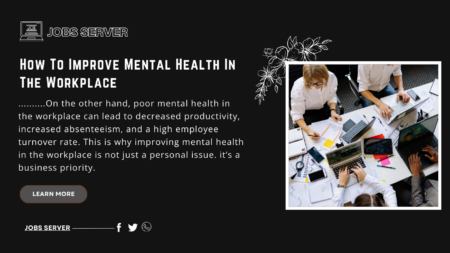How To Stay Motivated In A Long-Term Career
INTRODUCTION
Staying motivated over a long time in a career can feel like running a never-ending marathon. It’s very common to experience initial excitement when you start a new job, but as the years go by, maintaining that same level of passion can become challenging. When the freshness of the jobs wears off, and routine sets in, it’s easy to fall into the trap of inactivity and not being active doing what you have been doing before. This is where staying motivated becomes a deliberate choice, one that requires effort and strategy.
- ALSO CHECK.
- How to Know If Your Social Skills Are Bad
- How To Develop Leadership Skills In Employees
- How to Empower Aspiration in the Workplace
As a worker, the key to long-term career motivation lies in understanding yourself, setting realistic goals, and finding ways to refresh your outlook regularly. Whether you’ve been in your current job for five years or twenty, this article will show you step-by-step strategies to stay motivated and fulfilled in your career.
1. Always Revisit And Revise Your Career Goals.
Career goals evolve. What might have driven you in the beginning may not hold the same appeal five years down the road. A great way to keep your motivation alive is by revisiting your career goals and adjusting them to reflect your current aspirations and values.

For instance, when I started as a content writer, my goal was simply to improve my writing skills and build a portfolio. As time passed, I realized I wanted to focus on SEO content and make my mark by ranking high in search results. This shift in focus gave me a new challenge, reigniting my motivation.
- My Advice: Every six months, assess your progress and tweak your career goals to align with your personal and professional growth.
2. Look For Learning Opportunities.
One of the quickest ways to lose motivation is by falling into a comfort zone where nothing new happens. You begin to go through the motions without feeling any sense of achievement or excitement. A powerful antidote is to continually learn. Whether it’s attending workshops, enrolling in courses, or reading up on new developments in your industry, learning can keep you mentally stimulated.
When I started feeling complacent in my blogging career, I took courses in data analytics to understand user behavior better. This not only added a new skill to my repertoire but also renewed my passion for content creation.
- My Advice: Make time each month to learn something new related to your field or industry. Because a fresh skill can inject excitement back into your career.
3. Look For New Responsibilities
Doing the same job for years can sometimes make you feel like a component in a machine. To break out of this monotony, take on new responsibilities that challenge you. Taking on leadership roles, initiating projects, or mentoring others can provide a sense of purpose.
In one of my previous roles, I was writing articles for a company blog. After two years, I approached my manager about handling the blog’s editorial strategy. The new responsibility gave me a fresh perspective on my job, and I became more invested in my work
4. Sometime, Celebrate Small Wins
Long-term careers come with long-term challenges, and sometimes the end goal can seem so far away that you lose sight of the progress you’ve made. That’s why it’s important to break your goals down into smaller, manageable tasks and celebrate small wins along the way.
There was a time when my goal was to hit a specific number of blog visitors in a year. At first, it felt overwhelming, but I broke it down into quarterly targets. Each time I hit a target, I celebrated with my team. This made the process more enjoyable and gave me the push I needed to continue.
- My Advice: It’s very important to break big goals into smaller milestones, and celebrate each time you achieve one. This will help you sustain motivation over the long term.
5. Build Meaningful Relationships At Work With Your Colleague
Workplace relationships can significantly influence how motivated you feel in your career. Having colleagues who support and encourage you creates a positive work environment, which can boost your overall morale. Building these relationships can also open doors to new opportunities and collaborations that keep your career fresh and exciting.
I can remember in one of my first jobs, I was lucky to form a close-knit group with a few colleagues who shared similar goals. Whenever I hit a slump, they were there to encourage me, and I did the same for them. These relationships made me look forward to going to work and helped me stay motivated.
6. Find A Work-Life Balance
Exhaustion is a major demotivate, especially in long-term careers. The constant pressure to meet deadlines and achieve targets can make you lose sight of the bigger picture. Achieving a healthy work-life balance is crucial to long-term motivation. When you create time for your interests and relationships, you recharge your energy, making it easier to stay focused at work.
I once worked in a fast-paced environment where I was putting in long hours, thinking that this would fast-track my success. However, I quickly burned out. I realized I needed to set boundaries and make time for hobbies outside work, like hiking and reading. Once I restored balance, I became much more productive and motivated at work.
7. Always Reflect On Your Impact
It’s easy to get lost in the day-to-day grind and forget the bigger impact of your work. Reminding yourself of the positive contributions you make can reignite your passion. Whether you’re helping clients solve problems, creating innovative products, or mentoring new employees, reflecting on how your work makes a difference can provide a deeper sense of fulfillment.
8. Constant Change Your Environment
Sometimes, your work environment can contribute to feelings of boredom or frustration. If your workspace is dull or unorganized, it can drain your energy. A small change in your environment, such as rearranging your desk, adding plants, or working from a new location, can breathe fresh life into your routine.
Sometimes, when I felt stuck in a creative rut, I rearranged my home office and added a few pieces of inspiring artwork. The simple change made a big difference, making my workspace more inviting and boosting my productivity.
9. Focus On Long-Term Career Growth
Think of your career as a journey with multiple phases. It’s easy to get bogged down in short-term struggles, but by keeping your eyes on long-term growth, you can stay motivated even when things get tough. Investing in your personal development and focusing on where you want to be in the next 5 to 10 years can help keep your career goals in perspective.
For example, I’ve always had a vision of transitioning from content creation to leading a team of writers. This long-term vision helps me stay focused even when faced with setbacks or periods of stagnation.
- My Advice: Develop a five-year plan that outlines where you want to be in your career. Regularly check in on your progress and adjust your path as needed.
ADVANTAGES OF LONG-TERM CAREER MOTIVATION EFFORTS
1. Your Growth Will Be Continuous
When you remain motivated, you’re more likely to pursue learning opportunities and self-development. This constant effort to improve ensures that you grow both in your skillset and in your mindset. This motivation drives you to seek out new knowledge, adapt to changes in your field, and stay ahead in your career.
For instance, in my journey, staying motivated led me to take courses and learn about content marketing strategies, helping me become a better writer and expand my professional toolkit. This personal growth is invaluable, making me a well-rounded professional.
2. It Will Increase Productivity In Your Working Environment
In my case, whenever I feel driven by new goals, I notice that I can produce higher-quality content at a faster pace. This also enhances my reputation and reliability within my industry.
So, Motivated individuals tend to be more productive because they approach their tasks with enthusiasm and focus. You’re likely to complete tasks efficiently, meet deadlines, and even go beyond what’s expected. This can boost productivity can accelerate your career progression.
3. It Gives You Higher Job Satisfaction.
Satisfaction in your job often links with how motivated you feel. When you have clear goals, take on new challenges, and find meaning in your work, your overall happiness increases. Job satisfaction is essential for long-term career success and personal well-being.
When I started writing articles, I realized that setting small milestones and celebrating them gave me immense satisfaction. The sense of achievement after reaching a target was enough to keep me motivated and content with my work.
4. It Gives You Better Professional Relationships
Staying motivated allows you to contribute more positively to your work environment. You become a source of inspiration and energy, which can improve your relationships with colleagues, managers, and clients. Positive workplace relationships create a collaborative and supportive atmosphere that benefits everyone involved.
5. Regular Career Advancement
A motivated individual is more likely to be noticed for promotions, raises, and leadership roles. When your managers and colleagues see your dedication and passion, it’s easier to earn recognition and new opportunities for advancement.
6. It Enhanced Creativity
When you’re motivated, your mind is more open to new ideas and solutions. This increased creativity can lead to innovative problem-solving and the development of fresh approaches in your job. Employers value employees who can think outside the box and bring something unique to the table.
Whenever I feel motivated, I notice that I’m more creative in brainstorming content ideas, finding new angles for stories, and coming up with solutions for complex tasks.
DISADVANTAGES OF LONG-TERM CAREER MOTIVATION EFFORTS
While all the above strategies can help keep you motivated, it’s also important to acknowledge the potential downsides. Constantly pushing for motivation can sometimes lead to unnecessary pressure and stress. For example, over-committing to new projects or responsibilities can leave you feeling overwhelmed. Similarly, the pursuit of constant learning without balance can make you feel exhausted.
However, recognizing when to pause, reflect, and rest is crucial. While staying motivated is important, it’s equally important to know when to take a step back and recharge.
FINAL THOUGHT
Staying motivated is an ongoing process that requires balance, reflection, and a willingness to adapt as your career evolves. With the above steps, you’ll not only sustain your motivation but also find greater satisfaction and fulfillment in your long-term career.
SOME ASKED QUESTIONS ON HOW TO STAY MOTIVATED IN A LONG-TERM CAREER
- How can I keep my passion alive in a long-term career?
Find ways to reignite your passion by setting new goals, taking on different challenges, and constantly learning. Reflect on what made you excited when you first started and try to incorporate more of that into your routine. - What habits help maintain motivation over a long career?
Building small, daily habits like organizing tasks, celebrating achievements, and maintaining a healthy work-life balance can help keep you motivated long-term. - How can I avoid burnout in a long-term career?
To avoid burnout, take breaks when needed, delegate tasks when possible, and prioritize self-care. Regular vacations and hobbies outside of work help too. - What role does mentorship play in staying motivated?
A mentor can offer guidance, support, and new perspectives, helping you stay focused and inspired. They can also introduce you to growth opportunities and career development. - How can I stay motivated when my career growth feels stagnant?
Consider learning new skills, taking on side projects, or seeking a promotion or role change. Shifting focus can help you regain momentum when things feel stuck. - What is the importance of setting new goals in a long career?
Setting new goals keeps your career dynamic and exciting. They give you something to work toward and help you measure progress over time. - How does a positive work environment impact long-term motivation?
A supportive work culture with healthy communication and teamwork can boost motivation. Feeling valued and connected at work makes staying engaged easier. - Can taking on new responsibilities boost motivation?
Yes, new responsibilities challenge you to grow, offering fresh experiences and breaking the monotony of your routine. This sense of progress keeps you motivated. - How do personal milestones affect long-term career motivation?
Personal milestones; like anniversaries, accomplishments, or learning new skills, are great motivators. They remind you of how far you’ve come and what you can achieve. - How can I use feedback to stay motivated?
Constructive feedback helps you understand where you can improve and where you’re excelling. This clarity pushes you to strive for better results, keeping motivation high.





